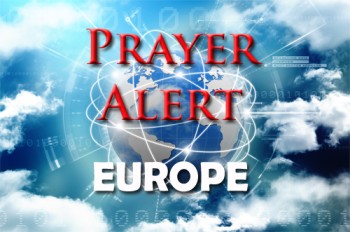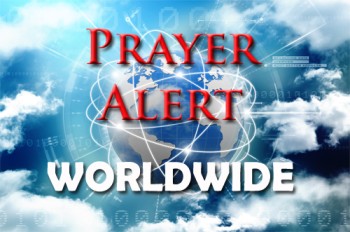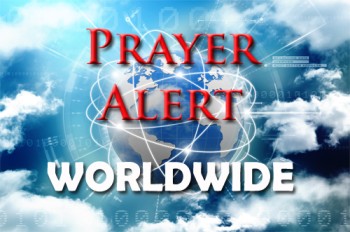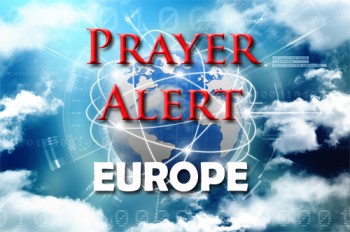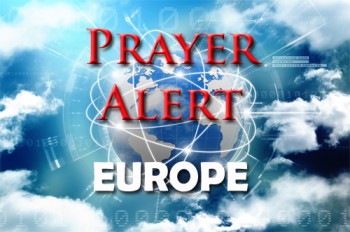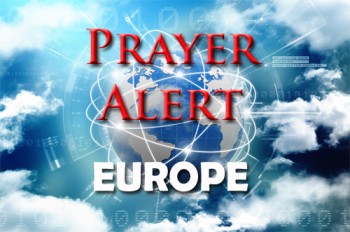Displaying items by tag: Moldova
Moldova: president warns of Russian interference as elections near
Days before crucial parliamentary elections, Moldova’s president Maia Sandu has warned that Russian-backed plots are threatening her nation’s independence and European aspirations. Police have arrested 74 people accused of planning violent unrest, seizing weapons and explosives allegedly supplied through Russian training in Serbia. Sandu accused the Kremlin of pouring hundreds of millions of euros into Moldova to spread disinformation, buy votes, and intimidate pro-EU supporters, echoing past meddling during the 2022 EU-accession referendum which was narrowly approved by just 50.4%. Pro-Russian parties deny wrongdoing and claim Sandu is stifling opposition, while Moscow’s SVR intelligence agency countered with disinformation alleging European plans to falsify the vote and occupy Moldova. Sandu’s Party of Action and Solidarity faces stiff competition, especially in Russian-speaking regions like Gagauzia where many favour closer ties to Moscow. She is calling for high voter turnout, particularly from the diaspora, to safeguard the country’s sovereignty and keep its path toward EU membership.
Armenia / Moldova: initiative for youth with disabilities
Eurasia Foundation (EF) has announced the launch of a two-year Justice for Underserved Youth with Disabilities (JUDY) initiative, which promotes the full social, economic, and political integration of youth with disabilities in Armenia and Moldova. EF works with local organisations, international disability rights experts, and youth advocacy experts to amplify the voices of youth with disabilities between ages 18 and 30. Lisa Coll, EF president, says, ‘JUDY addresses the unique challenges faced by youth with disabilities, both because of their age and entrenched cultural stigma around disability.’ While both the governments of both countries demonstrate interest in protecting the rights of people with disabilities, the legacy of Soviet-era policies and cultural stigma often complicate the work of disability rights advocates. Many institutions in both countries view disability as a medical topic, rather than a social and political issue that can change through concerted effort. JUDY will approach these challenges by involving organisations and experts with deep roots in the local disability rights communities. This collaboration will foster more open dialogue, build relationships, and provide support for youth-led initiatives.
Saudi Arabia: football, human rights, nuclear programme
News that Saudi Arabia is on course to host the 2034 football World Cup is grim. The country might not win the cup, but its capacity for state murder is world class: 112 killed this year so far and counting. However, the news should come as no surprise: its geopolitical power is rising and combining with vast wealth to ensure that objections to its human rights record are brushed aside by those in power. Before he was elected president, Joe Biden declared that Saudi would be treated as a ‘pariah state’ following the state-sanctioned murder of dissident journalist Jamal Khashoggi in 2018. But once he was in the Oval Office, realpolitik intervened. His administration is now most concerned about China’s growing influence, which is why it has agreed to Saudi Arabia’s request for help in building a civilian nuclear programme - which critics fear could lead to developing nuclear weapons. US dollars could end up paying for the defence of a brutal Gulf regime that has undermined Western economies, helped Russia’s invasion of Ukraine by cutting oil supplies and keeping prices high, and continued with the catastrophic war in Yemen. In these terms, gifting Bin Salman the World Cup seems like a minor folly.
Moldova: severe energy crisis
Moldova has made history by buying gas from a source that was not Russia's Gazprom. The one million cubic metres came from Poland's PGNiG. Moldova will need much larger volumes if Russia cuts supplies, as it has threatened to do if they don’t agree to increased costs in a new contract. In the absence of a new deal Russia reduced supplies, prompting Moldova to declare a thirty-day state of emergency. Gazprom accused Moldova of ‘provoking a crisis’ and demanded repayment of a $709m (£514m) debt, which Moldova disputes. Officials say they would like to sign a new contract with Gazprom, but only if the terms are favourable. Negotiations continue. Moldova said PGNiG’s shipment was to test the ability of imported gas from alternative sources, and PGNiG was one of seven offers they had received. Critics accuse the Kremlin of hiking gas prices to punish Moldova for electing a pro-European president, Maia Sandu.
Moldova: limited access to Covid vaccines
So far Moldova has only received 36,000 doses of the Covid vaccine, barely enough for 1% of its population of 2.6 million. This stock isn't even enough to cover the country’s primary target - its 60,000 medical staff. A coordinator from the National Vaccine Program said a three-stage rollout is ready, but the doses are not. He explains that to keep to their target of immunising 70% of their population, ‘we need to have more negotiations with manufacturers. But we are a small country, with a small population; we are not as interesting for manufacturers as other countries. The consequences of the lack of doses are dire, especially for the most fragile’. An NGO distributing lunch boxes to elderly and isolated populations in a poor neighbourhood said, ‘The week we went there, the death rate had almost doubled compared to the previous week. Yet despite this, there is still no sign of more vaccines.’
Moldova: democracy faces risks
Lack of transparency and accountability has allowed corruption to flourish in Moldova’s politics. February’s parliamentary elections saw many long-standing politicians swept out of office, but results were inconclusive. None of the major parties secured a majority. Three parties exert a powerful political influence over key state institutions, including the judicial system. If they are unable to negotiate a viable coalition agreement, or if the final results are not validated, new elections could be called. In the run-up to elections, some candidates accused the authorities of poisoning them. Toxicology reports showed elevated mercury amounts in their blood. Journalists could not access information about political developments, and politicised media ownership reduced consumers’ exposure to diverse viewpoints. The route to a stable government remains unclear.
Three elections on 24 February 2019
On this day a national referendum to ratify Cuba's new constitution will take place; the government says that gay marriage protections will be removed from the draft, but this is still being argued by politicians. Moldova’s elections are under a new mixed electoral system which people do not trust. Pray for peaceful electioneering and outcomes in both these situations. Since the military coup in Thailand, a new political party, the youthful Future Forward Party, has emerged (see). Critics say the constitution dilutes the power of elected governments and embeds the role of the military role in politics and policy for the next twenty years. Activists have been calling on the government not to postpone the election again, amid fears that it might do so.
